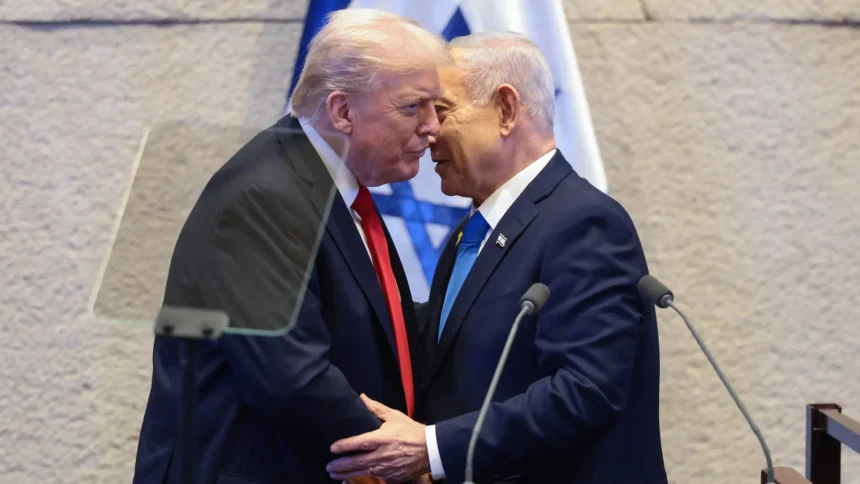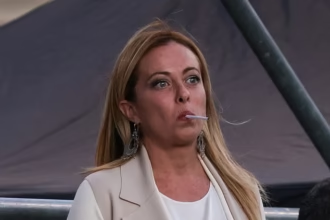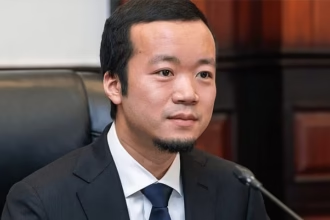In a moment of unexpected political theatre, U.S. President Donald Trump on Monday stunned lawmakers at the Israeli Knesset in Jerusalem when he publicly urged Israeli President Isaac Herzog to grant a pardon to Prime Minister Benjamin Netanyahu, who is currently standing trial for corruption.
Departing from his prepared remarks during the high-profile address, Trump turned to Herzog and said:
“Hey, I have an idea. Mr. President, why don’t you give him a pardon? Cigars and some champagne — who the hell cares?”
The comment drew audible gasps from some members of parliament and laughter from others, as Trump directly referenced one of the three corruption cases filed against Netanyahu in 2019. The case accuses the prime minister and his wife of accepting nearly 700,000 shekels (about $210,000) worth of cigars and champagne from wealthy businessmen in exchange for political favors.
Netanyahu’s Legal Battle
Netanyahu, Israel’s longest-serving leader, has faced charges of fraud, bribery, and breach of trust since his indictment. He has consistently denied any wrongdoing, dismissing the trial as a “left-wing witch-hunt” aimed at removing him from power.
Although Israel’s president possesses the constitutional power to issue pardons, the position is largely ceremonial, and such a move would be highly controversial given Netanyahu’s ongoing trial, which began in 2020.
The proceedings have faced numerous delays over the years, disrupted by the COVID-19 pandemic, domestic political crises, and regional conflicts in the Middle East.
Trump’s Visit and Previous Remarks
President Trump’s trip to Jerusalem was primarily aimed at celebrating the U.S.-brokered Gaza peace deal and the release of all remaining Israeli hostages held by Hamas — a diplomatic breakthrough hailed as a major achievement for his administration.
However, his off-script call for clemency overshadowed much of the event, reigniting debates over Netanyahu’s legal fate and Trump’s longstanding personal and political friendship with the Israeli leader.
This is not the first time Trump has weighed in on Netanyahu’s trial. In June, he called for the proceedings to be canceled, describing them as “a waste of time” and “a distraction from real leadership.”
While the White House has yet to issue an official clarification, Trump’s comments have sparked both praise from his conservative supporters and criticism from legal analysts, who warn that his remarks blur the line between diplomacy and interference in another nation’s judicial process.






